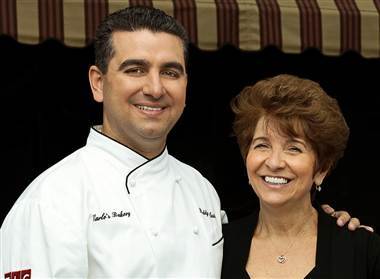“Who Framed Roger Rabbit?” Actor Bob Hoskins Has Died
Veteran British actor Bob Hoskins, probably best known for his roles as PI Eddie Valiant in Who Framed Roger Rabbit and Smee in “Hook” has died at the age of 71. In August 2012, Hoskins announced that he was forced to retire from acting because he had been diagnosed with Parkinson’s Disease. According to his family Hoskins died in hospital of pneumonia.
Pneumonia is a frequent complication of Parkinson’s Disease. In fact, it is the leading cause of death in people with Parkinson’s Disease (PD). Over time, patients with PD lose precise control of their muscles. This is especially true of the muscles that control eating and swallowing. Difficulty swallowing, called dysphagia, can lead to a kind of pneumonia called aspiration pneumonia. Aspiration pneumonia occurs when food, saliva, liquids, or vomit is breathed into the lungs or airways leading to the lungs.
Eating and swallowing are complex neuromuscular activities consisting essentially of three phases, an oral, pharyngeal and esophageal phase. Each phase is controlled by a different neurological mechanism. People swallow an average of 580 times a day. There are about 50 pairs of muscles and many nerves that all must work properly to move food from the mouth to the stomach:
According to Dr. Michelle Ciucci, an Assistant Professor at the University of Wisconsin School of Medicine, swallowing difficulties can occur at any stage for patients with PD. The symptoms can range from very mild to severe and life-threatening. These can include:
- difficulty swallowing certain foods or liquids
- coughing or throat clearing during or after eating/drinking
- feeling as if food is getting stuck
As the disease progresses, the lack of coordinated muscle control of swallowing can lead to aspiration pneumonia. This can be one of two types:
- Aspiration pneumonitis- when stomach contents are breathed into the lungs. The acidity of the gastric acid causes a chemical burn to the lung tissue involved.
- Bacterial pneumonia- Aspiration of bacteria from the mouth and pharynx (throat). Streptococcus pneumoniae, Staphylococcus aureus, Haemophilus influenzae, and Enterobacteriaceae are the most common germs involved.
A number of things can be done to help patients with swallowing difficulties. This can include:
- Positioning: Sitting upright during and after meals, tucking the chin while swallowing
- Minimize distractions during meals
- Changes to the diet: Thickening liquids, using a softer diet, cutting food into smaller pieces, increasing the amount of liquid (if tolerated)
- Exercises: to increase muscle strength, sometimes including electrical muscle stimulation
- Occasionally patients may need an alternative to oral feeding such as a feeding tube.
Dr. Ciucci suggests that patients with PD need frequent reassessments for swallowing difficulties:
“Because Parkinson disease is progressive, swallowing abilities can change over time, underscoring the need for early intervention and frequent follow-up. Sometimes the signs of a swallowing disorder can be subtle, so it is important to be vigilant. If you think you have difficulty swallowing, ask your physician to refer you to a speech- language pathologist for a swallowing evaluation.”



























0 comments